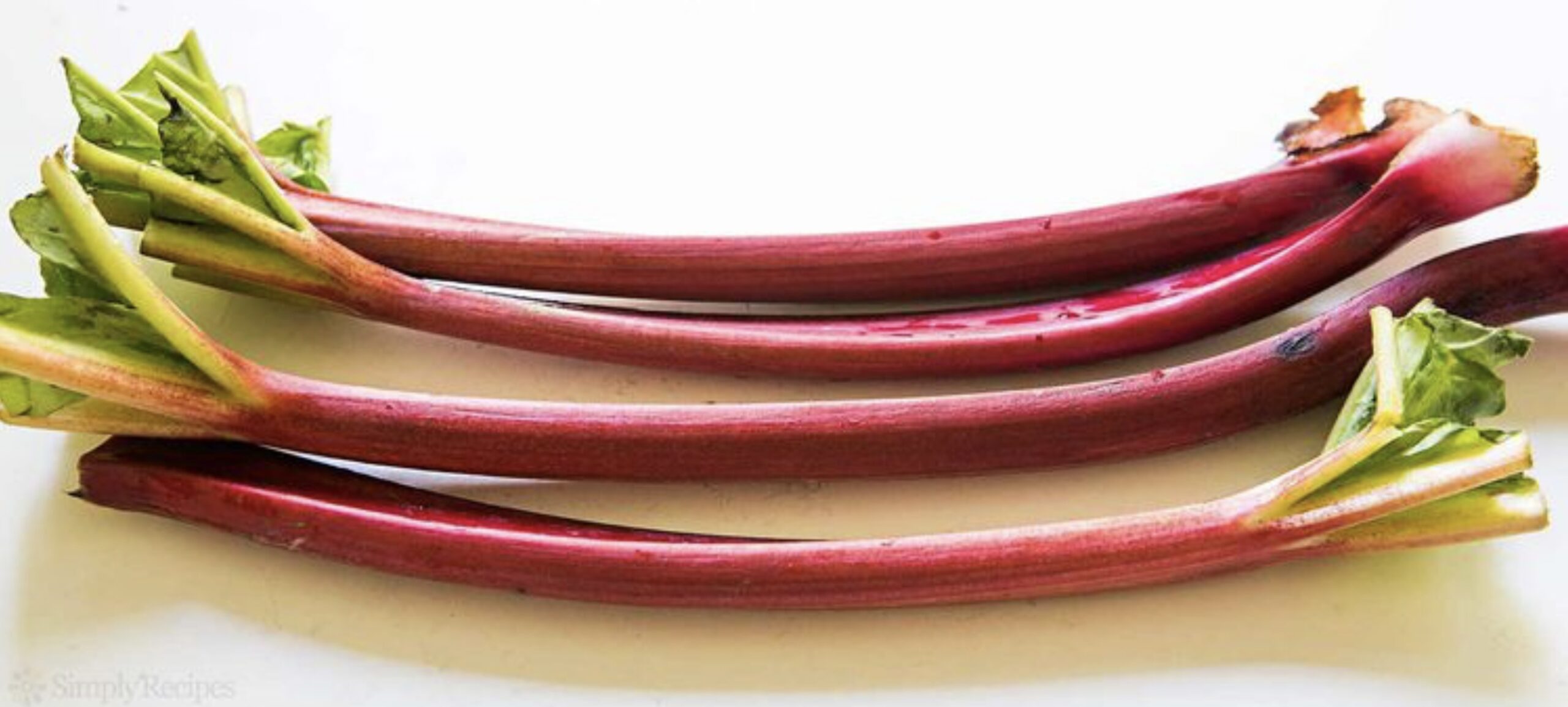Health Benefits of Rhubarb
What are the health benefits of rhubarb?
Rhubarb offers several health benefits when consumed as part of a balanced diet:
- Rich in Nutrients: Rhubarb is low in calories but high in vitamins and minerals. It contains vitamin K, vitamin C, calcium, potassium, and manganese.
- Digestive Health: Rhubarb contains a compound called anthraquinone, which has a laxative effect and can help promote healthy digestion.
- Antioxidant Properties: Rhubarb is rich in antioxidants, such as anthocyanins and polyphenols, which help protect cells from damage caused by free radicals and may reduce the risk of chronic diseases.
- Heart Health: The fiber, vitamins, and minerals in rhubarb can help support heart health by lowering cholesterol levels, reducing blood pressure, and decreasing the risk of heart disease.
- Bone Health: Rhubarb is a good source of vitamin K, which is important for bone health and may reduce the risk of osteoporosis.
- Anti-Inflammatory Effects: Some compounds in rhubarb have anti-inflammatory properties, which may help reduce inflammation in the body.
- Weight Management: Rhubarb is low in calories and high in fiber, which can help you feel full and satisfied, making it a great choice for weight management.
Overall, rhubarb is a nutritious vegetable that can be a healthy addition to your diet. It can be enjoyed in desserts, jams, and sauces, or used in savory dishes to add a tart flavor and nutritional value.
What are the health risks of rhubarb?
While rhubarb is generally safe for most people when consumed in moderate amounts, there are a few potential health risks associated with rhubarb:
- Oxalic Acid: Rhubarb contains oxalic acid, which can bind with calcium in the body and form crystals. Consuming large amounts of rhubarb leaves, which contain higher levels of oxalic acid than the stalks, can potentially lead to kidney stones or other health issues. It’s important to avoid consuming rhubarb leaves and to moderate your intake of rhubarb stalks, especially if you are prone to kidney stones or have kidney problems.
- Digestive Issues: Some people may experience digestive issues such as stomach cramps, diarrhea, or bloating from consuming rhubarb, especially if they are sensitive to oxalic acid or have a history of digestive problems.
- Allergic Reactions: While rare, some individuals may be allergic to rhubarb, which can cause symptoms such as itching, hives, or swelling. Severe allergic reactions, such as anaphylaxis, are possible but uncommon.
- Interaction with Medications: Rhubarb may interact with certain medications, including blood thinners and medications for high blood pressure. If you are taking medication, consult with your healthcare provider before consuming rhubarb.
- Pesticide Residue: Like other fruits and vegetables, rhubarb may contain pesticide residue, especially if not organically grown. Washing rhubarb thoroughly before eating it can help reduce pesticide exposure.
Overall, rhubarb can be a healthy part of your diet when consumed in moderation. It’s important to avoid consuming rhubarb leaves and to be aware of the potential risks, especially if you have certain health conditions or are taking medication. If you have concerns about consuming rhubarb, consult with a healthcare professional.




